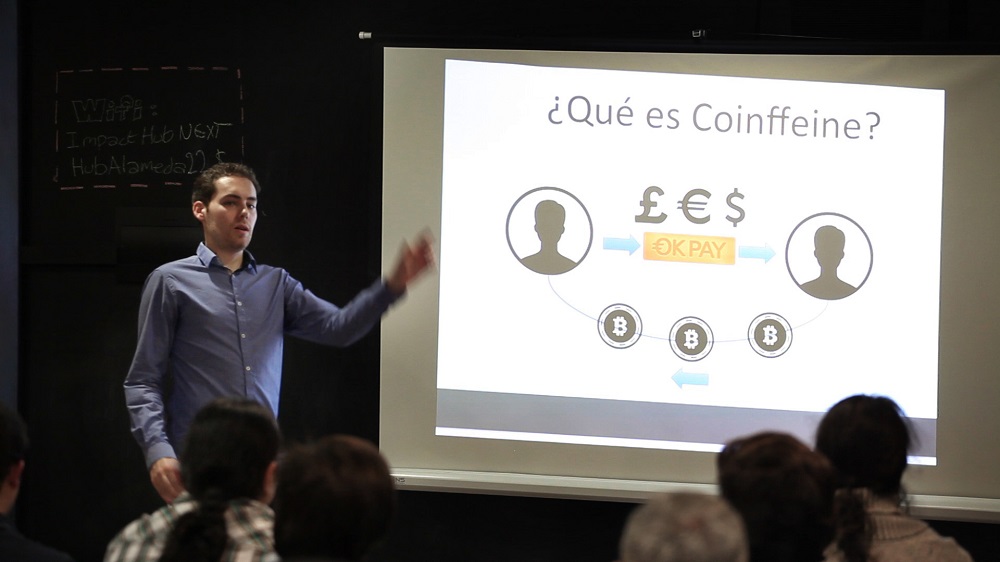Back in May, Coinffeine formed a company and blueprint for a decentralized exchange. The team has been testing for months. Friday, the team showed their decentralized exchange to a crowd for the first time.
Early tester Felix Moreno told Cointelegraph in an email:
“Centralized Bitcoin exchanges should take note. They are a few months away from becoming obsolete.”
The idea behind the exchange is to give users the option of exchanging bitcoin for fiat directly over the Internet, bypassing middlemen like Bitstamp and the defunct Mt. Gox exchanges. Users can connect directly with other users and make the exchange over the protocol. They call it a “BitTorrent for your bitcoins.”

The protocol has made headway. When Alberto Gómez, CEO of Coinffeine, gave the first presentation of the technology in Madrid, he said, “This event is not a 'here it is,' but a 'Hello, World.' Soon our protocol will be ready.”
He showed the crowd a transfer of 0.5 BTC across the peer-to-peer network. Attendees received a code to access the trial version and were able to participate with the pre-alpha testing.
“Coinffeine's platform looks neat. It's simple, effective and fast,” Moreno said. “If the real version works as well as the trial version... Well, I can't wait for it to come out!”

As Cointelegraph reported earlier this year, Coinffeine works with the help of a “zero-trust” deposit system. When delivering the presentation, Gómez discussed the role of game theory as a theoretical basis for the protocol. It gives system more control.
“As daunting as it might sound, it boils down to incentives and choosing the best option, taking into account the desires of the other player, and you can see it at work at many places,” he told Cointelegraph. “From the algorithm in Deep Blue defeating Garry Kasparov at chess, the design of the radio spectrum auctions, to the practice of letting one child split the pie and the other to pick which piece to eat.” He also explained:
“We have the extraordinary example of the Bitcoin network that set up a series of incentives in a way that you either follow the protocol rules and benefit or it does not make sense taking part in the game. In the same line of thought, we have used this technique in Coinffeine to guarantee that there is no incentive to modify our client, for example, to try to blackmail the counterparty and redistribute the deposits in an unfair way.”
The exchange opened its doors a couple of months after the then-largest Bitcoin exchange Mt. Gox failed. In November, the platform earned funding from Spanish banking institution Bankinter. Banks don't often invest in Bitcoin startups—if they ever have.
The developers believe it could be a “game changer.” Gómez said that he and his team "were sure that the software supposes a before and an after in the international Bitcoin ecosystem."
Did you enjoy this article? You may also be interested in reading these ones:
